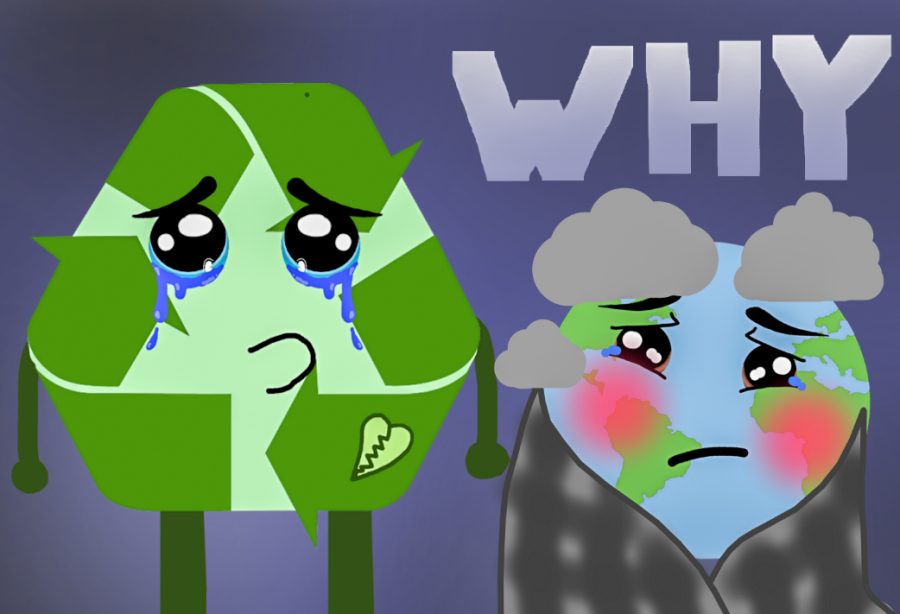Think more about reducing waste
Instead of only paying attention to one source of pollution, WSU takes a holistic approach towards going green
Recycling is just a small part of what goes on at WSU, and while you might not see the blue bins anymore, they are still working on reducing emissions.
February 3, 2020
Lots of students on campus have been voicing their concerns regarding the lack of recycling bins in the Compton Union Building, especially since they have grown accustomed to the detailed photo-specific signs attempting to teach us how to sort recyclables.
Students have been throwing around accusations towards both the CUB and University Facility Services, claiming not enough is being done to reduce our campus carbon footprint. These students might just be misinformed.
Should a student look into what happened with the CUB’s recycling bins, they would find themselves talking to Rick Finch, Manager of WSU Facilities Operations Waste Management.
Finch was confused after hearing about concerns about recycling bins in the CUB. He said they were still there, though fewer and more spread out.
Previously, the sorted bins collected as much recyclable material as possible, but the harsh reality was that just because it was labeled recycling never meant it was not contaminated.
Before recent developments in the comingled recycling industry, selling materials to recycling companies allowed up to 25 percent contamination. In recent years, however, major recycling collectors have changed their requirements, lowering the contamination allowance to just 5 percent.
With this harsh change, Facility Services and the WSU recycling team found themselves unable to send almost any recycling out due to its high contamination rate.
Nathan Kite, Waste Management program assistant, said how one day he pulled out all of the “sorted” bins and asked a disappointed eco-conscious student to identify which one was recycling. The student was unable to do so.
For the recycling team to be able to collect and recycle the materials, the consumers need to be aware of what can contaminate a collection and do their best to avoid it. Finch and Kite said waste minimization is the primary goal and most realistic approach to reducing our campus carbon footprint.
“The ultimate solution to our waste problem is waste minimization, we’re not going to solve the problem by just recycling,” Finch said.
Patrick Robichaud, president of the ASWSU Environmental Sustainability Alliance said that to be more sustainable, students need to make changes.
The ESA is currently in the process of planning an Earth Month, which will include zero-waste workshops and other events to highlight our usages. On the front end of consumption, the consumers need to have a certain level of awareness about what they are using and how that affects the environment.
“Be a conscious consumer, understand that some items are not recyclable. Pizza boxes are not recyclable because of the grease, neither are coffee cups. Especially with coffee in them,” Robichaud said.
Robichaud said he wants to introduce students to the Green Fund, which is university-based funding for environmental and sustainability-oriented student projects. Projects through this fund are one way our university is trying to stay ahead of the curve in sustainability.
Overall, the “removal” of the sorted recycling bins in the CUB seems to be for the best.
Finch said the quality of collections has improved since the change. It may seem counter-intuitive, but by reducing the number of recyclables wasted previously in collections the university has been able to recycle more. And good news, the CUB still has recycling bins — you just need to look for them.
Attempting to reduce the amount of single-use waste the university produces must start with the students, so get educated and start saving the planet.
The WSU Environmental Sustainability Alliance meets 5-6 p.m. every other Thursday on the first floor of the Commons Student Center.





















